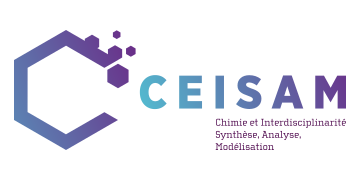
SIALOBACTER - Chemical inhibition of sialic acid catabolism from gut microbiota, a therapeutic perspective against inflammatory bowel diseases.
SIALOBACTER is a project led by Sébastien GOUIN (coordinator), involving the development of multivalent chemical inhibitors of enzymes involved in the catabolism of sialic acids by the intestinal microbiota. This enzyme inhibition could offer a new therapeutic perspective for the treatment of inflammatory bowel diseases.
Project summary
Mucins are glycoproteins that protect the intestinal wall from infection, and contain large quantities of sialic acids on their surface, such as N-acetylneuraminic acid (Neu5Ac) and its C-9 acetylated analog (Neu5,9Ac2). Neu5Ac serves as a substrate for the development of specific bacterial species in the microbiota. Several independent studies have shown that excessive hydrolysis of Neu5Ac by bacterial sialidases (SA) favors the development of enterobacteria, in particular adherent and invasive Escherichia coli (AIEC) strains. These AIEC are over-represented in the digestive tract of Crohn's disease patients, and play a fundamental role in the severity of inflammation. Interestingly, Neu5Ac catabolism is also indirectly triggered by bacterial sialate-O-acetylesterases (SIAE) such as EstA, an enzyme that converts mucin Neu5,9Ac2 to Neu5Ac substrates. Finally, a recent study also implicates human sialidase (Neu3) in these inflammatory processes (de-sialylation of a protective intestinal alkaline phosphatase).For the first time, the SIALOBACTER project proposes to develop potent and selective multivalent inhibitors of these different enzyme families (SA, SIAE, Neu3). These compounds will make it possible to study their role more precisely, and will represent an innovative approach to the treatment of chronic inflammatory bowel diseases, in particular by reducing the intestinal colonization of AIECs.
